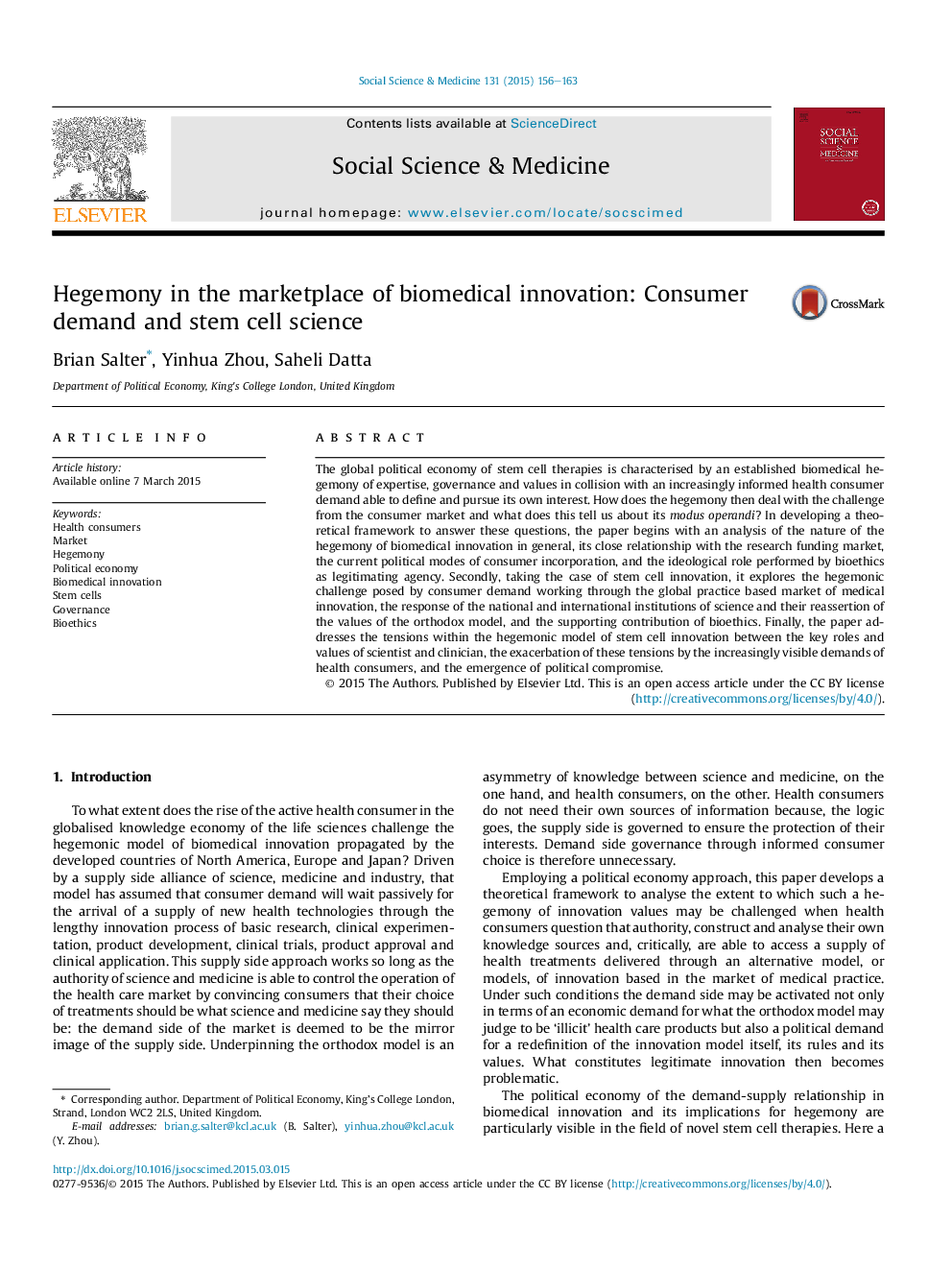| Article ID | Journal | Published Year | Pages | File Type |
|---|---|---|---|---|
| 7333056 | Social Science & Medicine | 2015 | 8 Pages |
Abstract
The global political economy of stem cell therapies is characterised by an established biomedical hegemony of expertise, governance and values in collision with an increasingly informed health consumer demand able to define and pursue its own interest. How does the hegemony then deal with the challenge from the consumer market and what does this tell us about its modus operandi? In developing a theoretical framework to answer these questions, the paper begins with an analysis of the nature of the hegemony of biomedical innovation in general, its close relationship with the research funding market, the current political modes of consumer incorporation, and the ideological role performed by bioethics as legitimating agency. Secondly, taking the case of stem cell innovation, it explores the hegemonic challenge posed by consumer demand working through the global practice based market of medical innovation, the response of the national and international institutions of science and their reassertion of the values of the orthodox model, and the supporting contribution of bioethics. Finally, the paper addresses the tensions within the hegemonic model of stem cell innovation between the key roles and values of scientist and clinician, the exacerbation of these tensions by the increasingly visible demands of health consumers, and the emergence of political compromise.
Related Topics
Health Sciences
Medicine and Dentistry
Public Health and Health Policy
Authors
Brian Salter, Yinhua Zhou, Saheli Datta,
